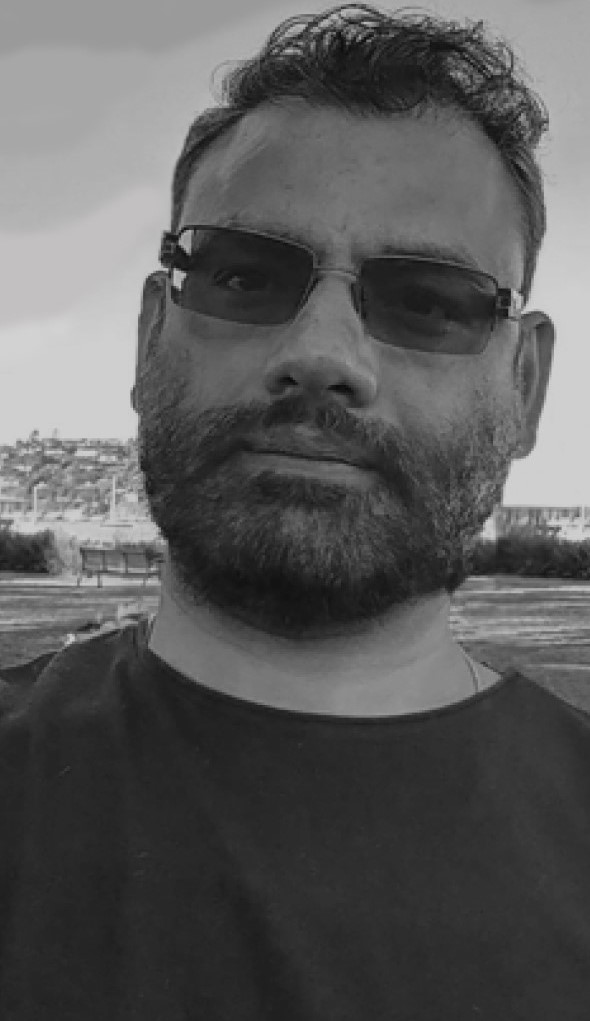A Review of Sabyasachi Nag’s Uncharted, Mansfield Press, 2021, ISBN: 978-1-77126-248-4.

Sabyasachi Nag’s Uncharted draws a map of an interconnected world that traces the boundaries and dotted lines we follow and occupy, including those that trail off at the edges. Divided into three sections, “Identity”, “Belonging” and “Death”, Nag’s work signals from the outset that it intends to mine territories rife with complex questions. The collection’s opening poem, “Maria After the Concert”, for instance, references the 2017 Manchester concert bombing. Told through the eyes of Maria’s partner, we see how “She needed a rub on her shoulders / before she could breathe properly”. Through the domestic scene of a woman arriving home “after a quiet week at work,” the world plays out on the couple’s television, and we learn, in words spoken by Maria herself at the end of the poem, “Forgetting won’t change anything”. If readers had hoped to forget, Nag’s poems invite us in to bear witness.

Bearing witness is most noticeable in both “Song of Aylan” and the collection’s title poem, “Uncharted”. “Song of Aylan” is about Aylan Kurdi, whose body washed up on the shores of Turkey in 2015. Nag’s preoccupation here is not only Kurdi’s death, but the deaths of all migrants who have perished at sea, because “Only in middle school are you so sure about numbers.” The poet doesn’t have answers for these senseless deaths as “Perhaps there are patterns in the sky beyond the sieve of language.” Similarly, “Uncharted” invokes the life of Junaid Khan, to whom the book is also dedicated. Khan was a teenaged Muslim boy who was stabbed and ejected from a running train in India. The question posed here is how any type of killing makes sense, in any context. For instance, “Is it all in the game – don’t ask Junaid – how to zip down on the kill. / How to count down like a bomb in your breath, how to shoot and cover / before you go blind in the alley of blind. There’s art in dying.” If there is an art to dying, it won’t be found in the bombs, violence or gunshots Nag depicts here, nor should it. As the poet repeatedly instructs us, “Don’t ask Junaid”, because, of course, we cannot. This phrase, and indeed the entire poem, is a signpost that travels with us and one we must heed as we move through the collection’s various territories.
While many of the poems are concerned with the senseless violence we often choose not to observe, Nag’s explorations, and the geography he attempts to make us see, also pivots on identity and its effects within a global context. In ““Ode to Fishing”, for instance, which in part speculates on the nature of a water hyacinth, Nag asks “how does one grow roots, / without dirt, just by floating? / What does one know of arrivals? / What do we leave when we leave home?” These lines highlight the spaces between physically having to leave a home or homeland, and the philosophical departures that drive us to points of arrival, which Nag suggests perhaps are “a kind of growing roots in water, / without dirt, like shapeless fish shadows / moving elsewhere.”
Rooting ourselves is a purposefully difficult task in Uncharted, as the ground is always shifting. As we search for “Belonging” in the book’s second section, our discoveries lead to an “Ode to Forgetting”, where “shadows fall off the cliff in flocks of thousands — / rising southwards, toward the lake / the colour of cinnamon, almost curlew / and formed like a question.” Even the shadows taunt us with their ability to turn ground into questions. And in “Racing a Storm”, the speaker commands readers to “Go home!” to avoid a blizzard, but the blizzard will arrive nonetheless, because “Cars gone, the road’s empty. / Maggots feed on a deer carcass by the shoulder. / The economy has tanked. / The storm is coming.” Belonging is therefore stacked up against lives filled with change and inevitably, change brings us to “Death”. We’ve already seen a number of deaths earlier in the book, but this third section seems to take on a more personal quality in poems like “My Mother’s Brain”, where, “No. She was no longer angry; / she had no more regrets”. Nag is prepared to explore this more private terrain as well, with the full recognition that “Life is either an ode or an elegy” (from “Ode to Ritual”).
Elegiac in tone, Uncharted never submits to a pessimistic worldview, nor does it fall prey to the dangers of a saccharine display of emotions in response to tragedy. Instead, this collection of engaged and intelligent poems offers a series of odes that deploy laser-sharp precision to bear witness to the overlapping tectonic plates of identity, belonging and death. In so doing, Sabyasachi Nag renders for his readers a detailed, evocative map of the unmarked spaces and identities of those that live between and across the undocumented territories of human existence.

You must be logged in to post a comment.